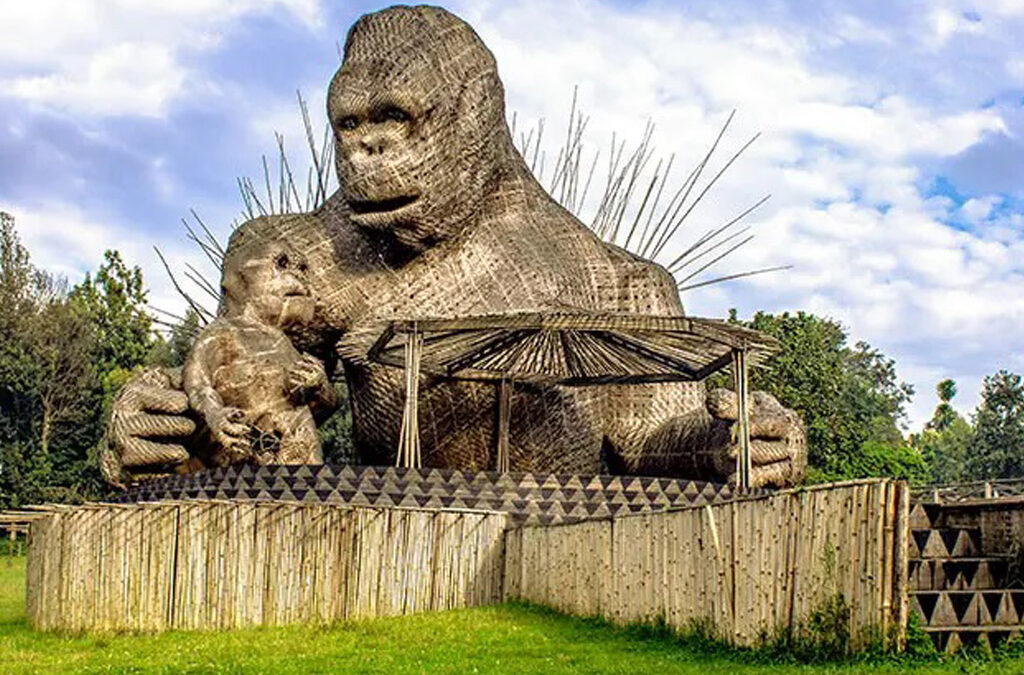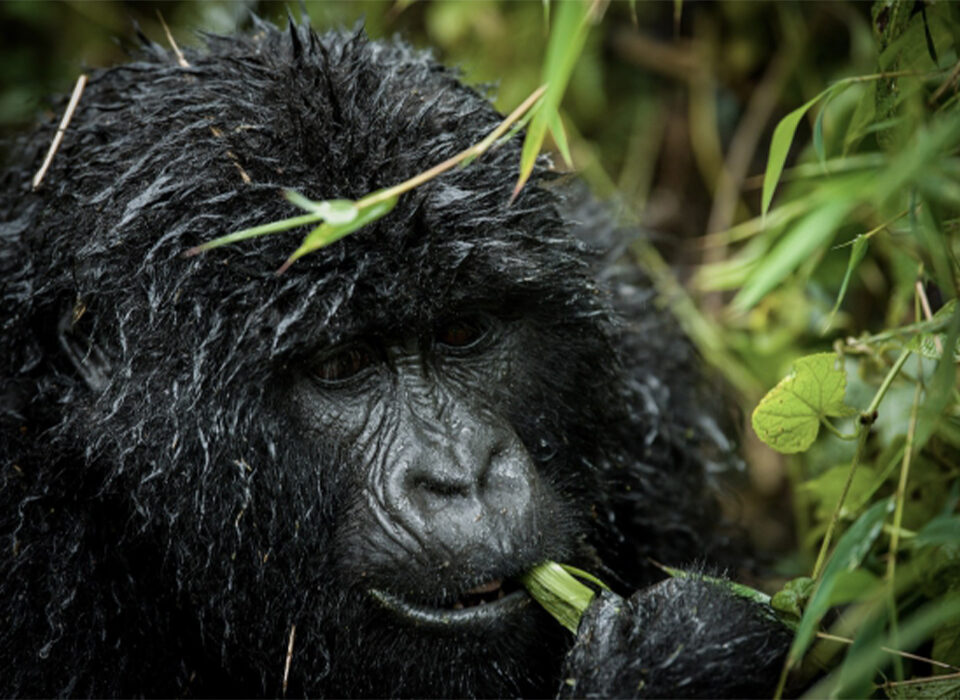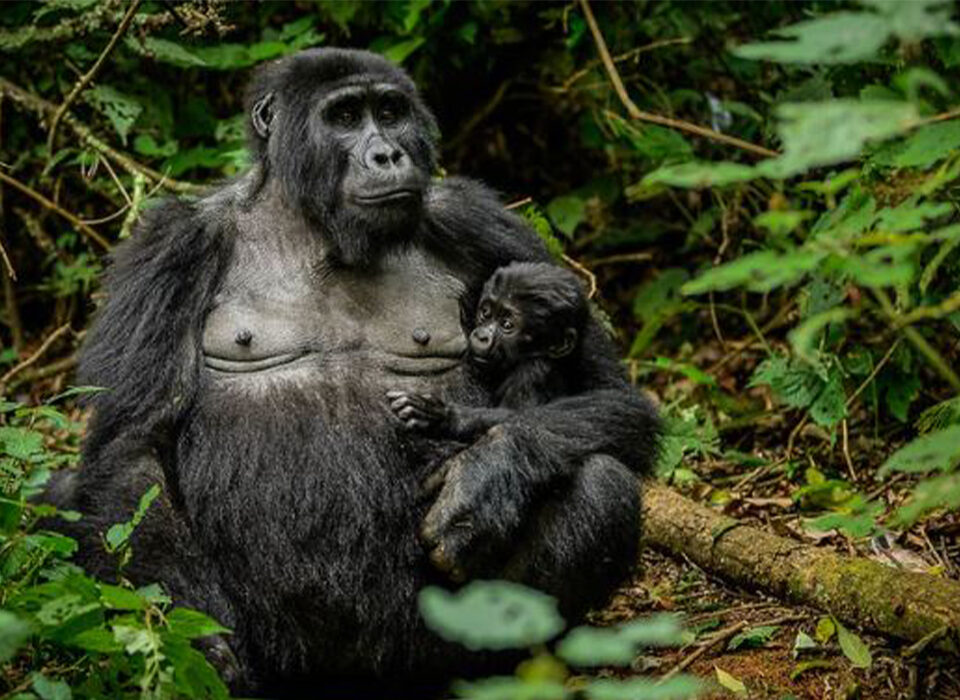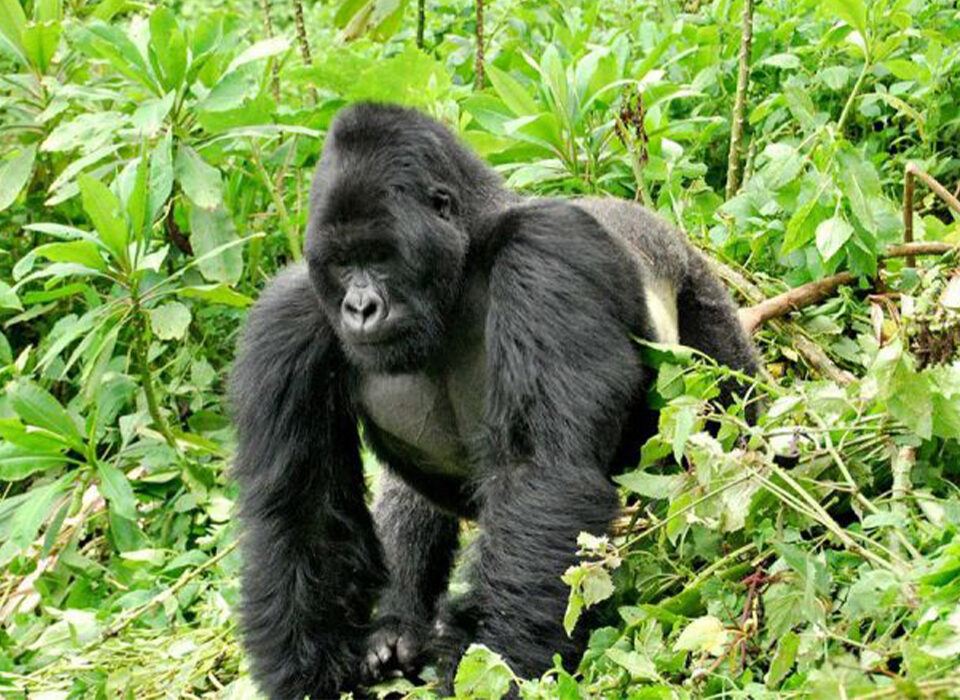
Animals in Bwindi Impenetrable National Park
August 16, 2025
Is September a Good Time to Visit Uganda?
August 18, 2025Gorilla Naming Ceremony in Rwanda – Kwita Izina

Gorilla Naming Ceremony in Rwanda – Kwita Izina
The Kwita Izina gorilla naming ceremony stands as one of Rwanda’s most treasured annual traditions, held every September. During this colorful event, every infant gorilla born in the past year receives a name before thousands of guests from around the world.
In Kinyarwanda, “Kwita Izina” means to give a name to a newborn baby. For centuries, Rwandans have gathered as a community to name and celebrate newborn children, pledging to raise and protect them together. Today, Rwanda has beautifully extended this deep-rooted cultural practice to the conservation world, ensuring that mountain gorillas are also named, honored, and protected.
The ceremony unfolds near Volcanoes National Park in the village of Kinigi, on the lush slopes of the Virunga Mountains. Over time, it has evolved from a small gathering of park rangers and researchers into a global conservation event. Today, more than 20,000 people including celebrities, conservationists, and government leaders attend this festival. Even Rwanda’s President often joins the celebration, underscoring the nation’s unwavering commitment to protecting these rare primates.
How Kwita Izina Began as a Conservation Event
Initially, park staff quietly named baby gorillas without any ceremony. However, as conservationists searched for more effective ways to raise awareness, they realized that turning this practice into a cultural celebration would inspire greater global attention. Consequently, the first public Kwita Izina ceremony emerged, blending tradition with conservation.
Since then, the results have been remarkable. Back in 1985, mountain gorilla numbers had dropped to about 300 individuals. Today, thanks to efforts boosted by events like Kwita Izina, their population has risen to over 1,000 across Rwanda, Uganda, and the Democratic Republic of Congo. Media coverage of the ceremony continues to attract worldwide support, drawing donors who contribute generously to both conservation initiatives and community development projects.
Why Name Infant Gorillas?
Giving each infant gorilla a name serves several crucial purposes.
- Identification: Because gorillas share nearly 98% of their DNA with humans, their faces look strikingly similar. Names help researchers, guides, and rangers easily distinguish one individual from another.
- Monitoring: Conservation teams track growth, health, births, and deaths more effectively when gorillas have names.
- Protection: Naming allows rangers to respond swiftly if a gorilla goes missing or faces threats.
- Sponsorship: Named gorillas create stronger connections with donors, encouraging more direct support for conservation.
What Happens During the Kwita Izina Ceremony?
The highlight of Kwita Izina comes when selected guests often conservationists, dignitaries, or notable public figures step forward to name the infant gorillas. They may either choose from a preselected list of meaningful names or create one themselves. On some occasions, newly formed gorilla families also receive names, strengthening the sense of unity and protection.
Beyond the naming, the celebration bursts with energy and culture. Traditional music, lively dance performances, and colorful displays immerse visitors in Rwanda’s rich heritage. Guests sample delicious Rwandan cuisine, weave baskets, craft local art, and join in traditional songs and dances. Moreover, many visitors extend their stay to explore Rwanda’s other wonders, such as hiking the Virunga volcanoes, visiting the Kigali Genocide Memorial, or embarking on a safari in Akagera National Park to see the Big Five.
The Ceremony’s Impact on Conservation and Communities
Ultimately, Kwita Izina represents far more than a naming ritual it powers conservation. By uniting local communities, global visitors, and international media, the ceremony shines a spotlight on the urgent need to protect mountain gorillas. Importantly, residents living near the park actively participate, learning about conservation and often becoming wildlife guardians themselves. Remarkably, some former poachers have even transformed into rangers after being inspired by these celebrations.
Furthermore, gorilla trekking tourism generates significant revenue. A portion of these funds flows back into local communities, helping to build schools, health centers, roads, and clean water systems. Local businesses such as hotels, transport providers, craft markets, and tour operators also thrive during the celebrations, proving that conservation and community growth can go hand in hand.
A Global Statement for Wildlife Protection
Today, the gorilla naming ceremony proudly symbolizes Rwanda’s determination to protect wildlife. By blending ancient traditions with modern conservation strategies, Rwanda has turned Kwita Izina into a platform for global cooperation. It sends a resounding message: protecting endangered species is not a local task but a shared responsibility. When communities and the world unite, conservation can transform challenges into powerful success stories.
Popular Tour Packages
- 2 Days Bwindi Gorilla Trek
- 2 Days Golden Monkey Trekking in Rwanda
- 3 Days Rwanda Gorilla Tour and Golden Monkeys
- 3 Days Lake Bunyonyi and Gorilla Trekking
- 3 Days Masai Mara National Reserve Safari
- 4 Days Queen Elizabeth Safari
- 5 Days Murchison Falls Safari
- 5 Days Uganda Primates Safari
- 6 Days in Kibale, Bwindi and Murchison Falls



